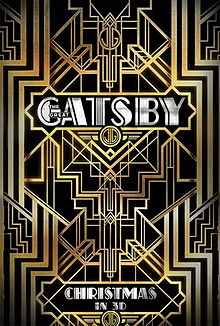Fuse Commentary: Borne Back Ceaselessly into the Kitsch? A Glimpse of Baz Luhrmann’s Gatsby
Judging by the trailer for The Great Gatsby, it looks as if director Baz Luhrmann’s habitual excess will overwhelm the lyrical beauty and subtle power of F. Scott Fitzgerald’s prose.
By Kyle Clauss.
The trailer for Australian director Baz Luhrmann’s adaptation of F. Scott Fitzgerald’s novel The Great Gatsby was released earlier this week and quickly set the Internet ablaze with excitement. No longer the squeaky Montague in Luhrmann’s Romeo + Juliet, Leonardo DiCaprio shines in the two and a half minute teaser, deftly oozing the enigmatic charm of the titular character. Frankly, DiCaprio would probably shine in just about anything after the murkily rendered J. Edgar.
However, as demonstrated by J. Edgar, powerful, praiseworthy performances are rendered moot if set within a woefully directed production, much like plunking a priceless ruby in a Burger King crown.
Luhrmann must resist the urge to bludgeon the viewer over the head with a fanatical emphasis on symbolism and imagery (unlike high school English teachers across the country). Given the glimpses of Gatsby’s yellow car zipping down a busy New York thoroughfare, the haunting eyes of Dr. T. J. Eckleberg, the silhouette of the laboring proletariat atop the steaming ash heaps, and the sickening amount of art deco stuffed into the trailer, it looks as if Luhrmann’s habitual excess will overwhelm the lyrical beauty and subtle power of Fitzgerald’s prose.
Perhaps Luhrmann will utilize his over-the-top style to convey the profligacy that disgusts the novel’s narrator Nick Carraway, played in the film by Tobey Maguire. After all, the trailer begins with a montage of a glittering, computer-generated, 1922 New York, set to “No Church in the Wild,” the lead-off track from Jay-Z and Kanye West’s album Watch the Throne, itself a meditation on excess. The anachronistic song selection that’s characteristic of Luhrmann’s films may be used to amplify the pathos of the book’s themes: unrequited love, preoccupation with past, the superficiality of the gentry, reinvention of the self. After all, that is why The Great Gatsby is still discussed, taught, and read nearly 90 years after its original publication. And why Luhrmann was given a $126 million budget. The excess of the era served as a means for Fitzgerald’s exploration of the American dream, not an ends.
The movie is slated for a Christmas Day release, and I can think of no better Christmas gift than Luhrmann’s self-restraint from using “Call Me Maybe” anywhere in this film. I will enter the theater with reserved, skeptical anticipation and a carefully hidden mint julep, usher permitting.
Here is Roberta Silman’s Arts Fuse review of Gatz, an award-winning theater adaptation of the Fitzgerald novel by Elevator Repair Service. “In Gatz,” she writes, “F. Scott Fitzgerald’s words come at the audience like bullets because they are so relevant to so much of American life today. And create the kind of catharsis, that peculiar combination of pity and fear, is the mark of truly great theater.”
Tagged: Baz Lurhmann, F Scott Fitzgerald, Gatsby, Leonardo DiCaprio, The Great Gatsby

